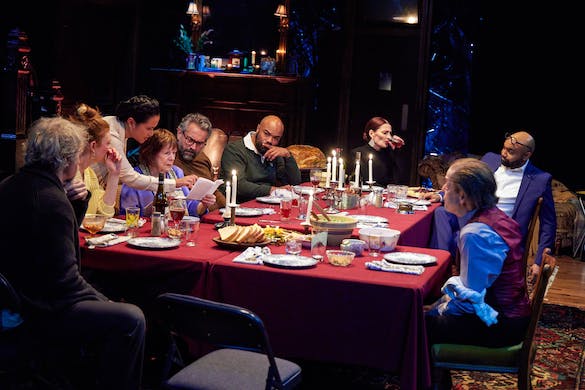James Joyce’s Work Lives On at Lincoln Center Theater
‘Epiphany’ is unabashedly inspired by ‘The Dead,’ but you needn’t be familiar with the source material to enjoy playwright Brian Watkins’s puckish, thoughtful new work.

Bloomsday, the annual June 16 celebration marking the single day traced at staggering length in James Joyce’s “Ulysses,” may have passed for this year but homages to the literary lion are alive Off-Broadway. At Irish Repertory Theatre, “Yes! Reflections of Molly Bloom,” a one-act piece adapted from the soliloquy that ends Joyce’s magnum opus — by Dublin natives Colum McCann, the noted author, and actor Aedín Moloney — is running through mid-July.
Please check your email.
A verification code has been sent to
Didn't get a code? Click to resend.
To continue reading, please select:
Enter your email to read for FREE
Get 1 FREE article
Join the Sun for a PENNY A DAY
$0.01/day for 60 days
Cancel anytime
100% ad free experience
Unlimited article and commenting access
Full annual dues ($120) billed after 60 days

